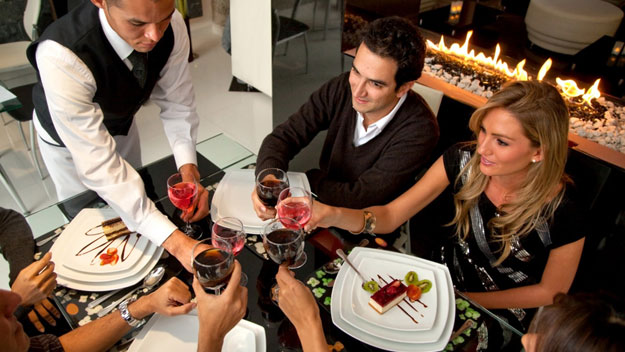The Power Of Trust and Influence
Trust is the most important component in any business transaction, human interaction, or relationship. It’s a fundamental part to life, and If you cannot trust anyone or in anything, life becomes intolerable—a constant battle against looming disaster and paranoia.
See within our occupation it is extremely important in the waiter/guest relationship. The customer is entrusting the waiter to provide them a great experience and the waiter in return trusts the guest to pay them for their service in the generally accepted way. Fair enough right? As you can tell, there’s an implied contract between the two and the best way to assure that both ends are taken care of is by the waiter establishing the trust of the restaurant.
There are numerous amounts of ways to do this but the one that we will specifically discuss in this precise installment is the display of an aura of competence. In order to display an aura of competence, this is done by being quick to answer food and beverage questions and to keep a professional bearing around the table. As a wise mentor of mines always liked to say, “You’ve got to know your menu and bar offerings”. It’s essential that you are able to be proactive in guiding the guest when they need or request help.
If you see a guest struggling over the wine list, don’t hesitate to jump right in and start asking questions like…
Elaborately Expose Your Expertise
“What kind of wine are you looking for – white or red? Red? Wonderful.”
“Do you like a full-bodied chewy wine or would you like something softer and more approachable?”
“What’s chewy you ask? Well allow me to elaborate for you.
Chewy is that sort of sandy feeling you get with some wines, well that’s the tannins in the wine which plays a role in part of the chewy.”
“Oh are you not a fan of that? Well, why don’t you try a good pinot noir? It’s quite delightful; much lighter and softer as well, might I add. Oh, you don’t like pinots?”
“Would you like something fruity then? We have a nice merlot that’s pretty big but not harsh. It’s kind of bright and zingy”.
“Sounds Good? Excellent, I’ll bring it right out”.
This sort of exchange demonstrates to your customers that you know your job. Here’s the thing though – there are some merlots that are done in a style similar to a cabernet, so if you bring one of them, you jeopardize and risk the carefully built image that you have constructed. So it’s crucial that you have to know your product and know what you are recommending.
Expand your Verbiage
Another way to establish competence is by using culinary terms judiciously. When you talk about the fine brunoise of red pepper that laces the red pepper coulis, you sell yourself as someone who knows what they are talking about. That sounds far better than saying that the chef has added cut up red peppers to the red pepper purée. The funny thing about it is that most people won’t even ask you what a brunoise is (a very small perfectly cut cube approximately 3mm on each side). However, they will ask you what a coulis is (and hopefully you’ve pronounced it as the chef did – cool-E) and you should have a ready answer tailored to your audience – if it’s a seemingly unsophisticated table, you can put them at ease by saying, “It’s just a fancy term for a smooth sauce”. If it’s apparent that the table is obviously somewhat well versed, you can leave out “a fancy term” and substitute purée for sauce.
As you can see trust is a vital component within the relationship you build with your customers. You become their trustee, their fine dining confidant, and most importantly their go-to trusted server whenever they come back! Try building a connection and trust with the next guests you encounter with. Use other skills I’ve shared with you in other posts such as How to Build a Connection with Guests & Increase your Tips Or also How to Create Rapport & Connection in a Small Amount of Time. Leave your questions and feedback in the comments, and begin to see your tips skyrocket!
